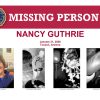The “vision of horror” in Nice, as police described the scene of a fatal knife attack in a church on Thursday, is a serious challenge for Emmanuel Macron. The French president has promised a crackdown on Islamist extremism, including shutting down mosques and other organisations accused of fomenting radicalism and violence, and said France was engaged in an existential battle against radical Islamic ideologies and separatism. His hardline interior minister, Gérald Darmanin, has spoken of extremists as the enemy within.
There was also a stabbing outside the French consulate in Saudi Arabia on Thursday and an incident in the French city of Avignon involving a man armed with a knife who tried to attack police. It follows the murder two weeks ago of a schoolteacher in Conflans on the outskirts of Paris after he had shown students a caricature of the prophet Muhammad, and the wounding of two people outside the former offices of Charlie Hebdo.
The attacks are unlikely to be part of a concerted campaign organised by a major group but responses to each other – experts have noted how one attack will frequently trigger more, often with the same tactics – and to the febrile atmosphere created by the angry rhetoric of some leaders in the Muslim world in response to Macron’s reassertion of France’s secular principles.
The violence will, however, undoubtedly please the leaders of Islamic State and al-Qaida, who continue to seek ways of remaining relevant in the rapidly evolving and competitive world of extremist groups by claiming to have at least inspired attacks in Europe.
Officials say extremists in Europe currently work through loose networks, embedded “in a wider Muslim extremist milieu, which can act as a conduit towards terrorist engagement”. These networks are largely homegrown and without organisational links to groups such as al-Qaida or Isis. There have also been incidents of self-radicalisation of individuals or small groups, principally via the internet, without being part of wider networks.
That less attention has been paid in the west to Islamic extremism recently is understandable. Deaths in Europe from all forms of terrorism fell by 70% last year, and western Europe recorded its lowest number of incidents since 2012. According to the latest Europol reports, there were 21 jihadist plots in the EU in 2019, compared with 24 and 33 in the two previous years. Of the 21, four failed, 14 were foiled and three were carried out.
There has certainly been nothing recently to rival the horrors of 2015 and 2016, when assault rifles and a truck were used to kill hundreds of people in a series of attacks.
That surge in violence was the result of a number of factors that converged at a specific moment: Islamic State’s rule over a swath of Iraq and Syria, its decision to target the west, its huge media output and establishment of camps to train some of the thousands of young men from Europe who travelled to take part in the conflict, the existence of a series of networks and capable senior militants linking France and Syria, and the failings of western European security services and policymakers.
Most of these factors have gone – the EU reported only two attempts to travel to join jihadist terrorist groups thwarted by member states last year – but others still exist. Some are particularly evident in France, where there were more than 200 arrests for jihadist terrorism last year, half of the total in Europe, and 8,000 individuals are considered at risk of radicalisation.
France will not give in to terror after Nice attack, Macron says
Read more
One major issue, as everywhere, remains the pernicious role of social media. This has been clearly shown in investigations into the murder of the teacher in Conflans. The teenage killer came from 60 miles away, and his knowledge of the teacher’s actions was based on misleading clips circulated by angry parents and a mosque.
A second is the prison population. Many of those detained for extremist offences in France have previous criminal records, and after the numerous arrests for extremism during the 2012-17 period, many of the less serious offenders are now coming up for release.
Police are yet to identify the Nice attackers, but both the Conflans murder and September’s Charlie Hebdo attack were committed by 18-year-old immigrants. Abdouallakh Anzorov was a Chechen who came to France at the age of six, probably from Moscow. Ali Hassan left Pakistan at 15 to be smuggled to Europe.
Shuja Nawaz, a fellow at the Washington-based Atlantic Council, said two factors were colliding to produce violence. “First, the conditions in the home countries like Pakistan that increasingly are becoming more Islamicised and anti-western through the influence of mullahs and populist governments, while their education systems crumble,” he said. “Second, in the western countries where migrants end up legally or illegally, there is a ghettoisation of Muslim immigrants, who turn to religion as a defence mechanism and rallying point.”























































Свежие комментарии